
The factory always starts out with a new Lincoln or Cadillac Coachbuilder Heavy Duty Package for the Lincoln or Cadillac limousines. The factory uses New Lincoln, Lincoln Navigator, Cadillac, Cadillac Escalade, Hummer, Mercedes, Infiniti and Chrysler 300 new cars to build the New Limousines. It is QVM and CMC Certified by Ford and General Motors.

We can build custom limousines on other cars as well.
The factory enhances the OEM braking system to accommodate the limos weight using oversized front brake pads and rear braking cylinders. The factory uses each models length and The factory selects the appropriate Moog heavy-duty spring for a better ride and greater safety. All units are fully inspected prior to production. Then they are stripped and covered, in and out, to protect the body and interior.

The factory's proprietary cutting unit. Each vehicle from six to 120 inches is within 1/16-inch tolerance for exact specifications. All body parts are locked in so there is no flex to change our exact cut specifications. And, of course, all specifications are equal to or above QVM and CMC standards.

The factory uses only OEM body mounts for all the extensions, adding eight to every stretch from 85 to 120 inches. They strengthen the chassis, smooth, and quite the ride. The factory's aluminized steel exhaust is mounted to improve clearance. Heavy-duty isolators limit vibration.

Floor assembly is reinforced and prepared for flat rear floor entrance area. This protects the carpet from high heel tears and supports the seating area. The factory uses OEM connectors to extend the electrical body harnesses, then loom them to protect from incision, humidity and temperature extremes. The proprietary cross-member frame design delivers unequaled crash performance. The OEM brackets, connectors, and double-wall, stainless steel chassis, fuel, and brake line extensions give backbone to the OEM extended 150,000-mile warranty. The factory assembles the drive shaft extension from OEM materials, then unit balance each other for a vibration free ride.

The factory's low-alloy, high-strength floor, rocker panel and header extensions are two-sided, hot-dipped, galvanized steel exceeding OEM standards. They resist damage even in the fiercest weather. Only factory pillars are used in all the extensions and are built to exact QVM standards.
All interior panels are then primer etched for rust protection prior to installation of the side panels. For passenger protection, The factory weld eight-gauge rectangular tubing to the front, center and rear OEM pillars in all 120-inch models and to the front and rear pillars in all other models. Then, The factory adds structural foam adhesive for rigidity.

The factory proprietary cutting unit. Each vehicle from six to 120 inches is within 1/16-inch tolerance for exact specifications. All body parts are locked in The exterior seven-step, epoxy-urethane coating is unique to the factory in the limo industry.

It's resistant to acid rain damage and chipping, while retaining a gloss high enough to dazzle any eye.

The factory roof bracing system bonds high-strength hot galvanized steel on 16-inch centers to the existing roof panel. The result is a vastly stronger roof for better client safety and operator piece of mind. Our side panel extensions are veritable works of art. They are bolted, not The welded, to the car, making them easy to replace in the event of collision. To reduce weight and eliminate rust the factory uses a combination of aerospace composites, high-strength marine alloy aluminum, stainless steel fasteners, and non-conductive sealants. For our roof and side wall insulation The factory use double-radiant-barrier aluminized Mylar, expanded closed-cell polyurethane foam.

The two air conditioning evaporators are built of 30-finned, aluminum/copper tubing to dissipate heat rapidly without rust. Each provides 19,200 BTUs of cooling capacity at face level. The heater core produces volumes of warm air, which The factory funnel to floor level, where it rises. Heat-blistered pavement is no match for Our factory's floor pan insulation. The energy-absorbing material of OEM-style wool felt drowns out sound, vibration, and temperature extremes.

This construction exceeds federal safety standards. The factory use the same materials plus a radiant barrier below our evaporators to enhance heating and cooling. The auxiliary air conditioning condenser and eleven-inch cooling fan improves heat exchange.

For the divider assembly the factory uses only high-strength aluminum extrusion OEM lift mechanisms for trouble-free operation year after year. Service personnel will find work easier and faster with our electric system control panel from ICS or Mastercon. Low-voltage switching signals are reliable and safe-and carry a limited lifetime warranty. The panel itself is mounted on the passenger side of the divider.

Nothing seems to age a limousine more than sagging or worn seats. The factory anticipates and counteracts this prolonged usage with tubular steel, eleven-gauge tension springs, Ricarro-style webbing, and multiple density foams.

The MVPU1 battery is a sealed lead acid high-output workhorse. The auxiliary air conditioning condenser and eleven-inch cooling fan improves heat exchange. The OEM heavy-gauge vinyl top won't fade or peel for years. Our auxiliary air conditioning condenser improves heat exchange.

This completes the build process for a superior limousine.

The Lemovices were a Gallic tribe who established themselves in the Massif Central area including Haute-vienne, Creuse, Corréze and Charente territories in France. Their capital was Durotincum (Villejoubert). Lemovices means "conquerors with the elm". The Lemovices gave their name to Limoge and to the province of Limousin.
Famous products of the province of Limousin such as the Aubusson tapestries, enamels and porcelains are made in the capital city of Haute-Vienne, Limoges.
A part from these products, Limousin beef cattle have been raised here for many years and, the shepherds who began the tradition of raising this special breed of cattle in Europe wore a long cloak associated with today�s lavish means of transport called LIMOUSINE.
The shepherds used the cloaks to protect themselves from the rain and from the cold. Limousine is the feminine adjective of the masculine form limousin. These 2 adjectives describe the origin of a person or of a product.
example:The concept of having chauffeur-driven vehicles dates back to the era of horse drawn carriages in the 1700s. The carriages were overstated with gold and they were drawn by the best looking animals. This service was anticipated for the wealthy.
In the 1900, some of the first engine powered carriages were designed with two compartments. The chauffeur had a covered compartment outside the carriage and the other compartment, also covered, was for the passengers.
The driver and the passengers were separated by a partition which had a sliding sound proof glass that allowed the passengers to keep their conversation private. If they needed to communicate with the driver, they would slide open the glass or use an intercom.
In many of the modern limousines, the partition still exists and the sliding sound proof glass, if not completely eliminated, has become part of the frame that secures and protects a flat screen TV, an indispensable amenity in today's way of life, travel, entertainment and work.
The picture below is that of an early idea that gave birth to what we now know as stretch and non stretch limousines: This is a 1908 Studebaker Limousine. limousine. This limousine had an open driver's compartment for the chauffeur and a closed cabin for the passengers, as typical in Edwardian limousines.



Hudson Super 6 Limousine with partition and sound proof sliding glass.

Here is a 1931, 7 passenger limousine.
The first stretch limousine was built in Arkansas in the late 1920s. They were used to transport big band leaders, their bands and their equipment. People called them Big Band Busses.
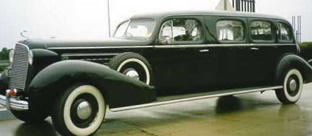
An early stretch limousine, a Cadillac Super Stretch
These sumptuous vehicles used to be limited to the rich, the famous and to the government.
Now, they are accessible to all including teenagers who are choosing to travel in style to their numerous scholastic, athletic, social events and summer camps.
Many industries that provide luxury means of transportation use them to generate business for their trade. The limousine industry is in its infancy in many parts of the world and active in the USA.

A 1977 Lincoln Continental Limousine


A 1986 Lincoln Town car Limousine and a 1986 Cadillac Fleetwood Limousine
The looks have changed; The Lincoln, Cadillac, Hummer, Chrysler, Mercedes to name a few, give a variety of exciting choices to industries such as car rentals, hotels, casinos, clubs, wedding salons and private buyers.
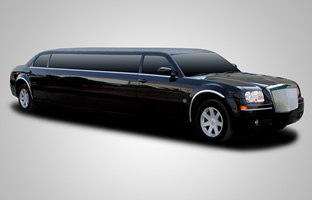
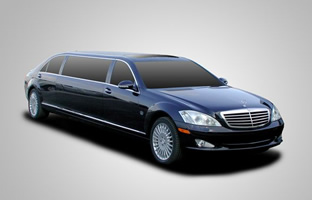
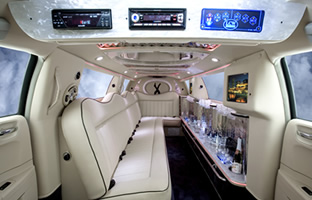
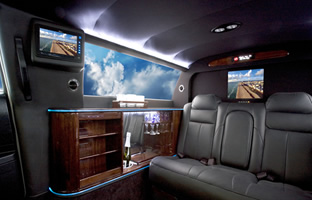
Here are a few pictures of a modern stretch limousine taken from our website. The exterior is beautiful, polished and luxurious. The plush interior shows a well equipped limousine with audio, video, flat screen and a bar.
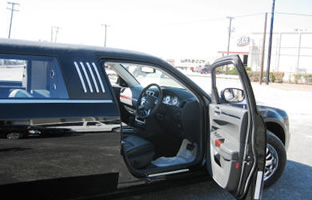
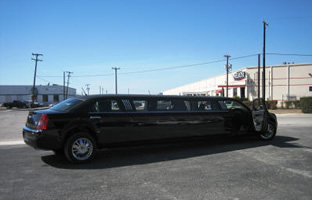
and we can now build RHD Limousines, Chrysler 300C or Mercedes:
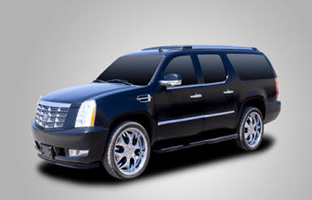
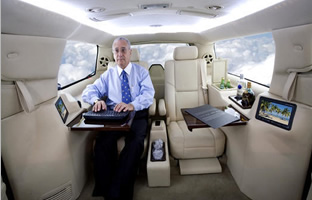
And, for corporate or personal use, the new non stretch Executive Mobile Office SUVs are the talk of the town.
One can only guess what is next in this growing global industry...